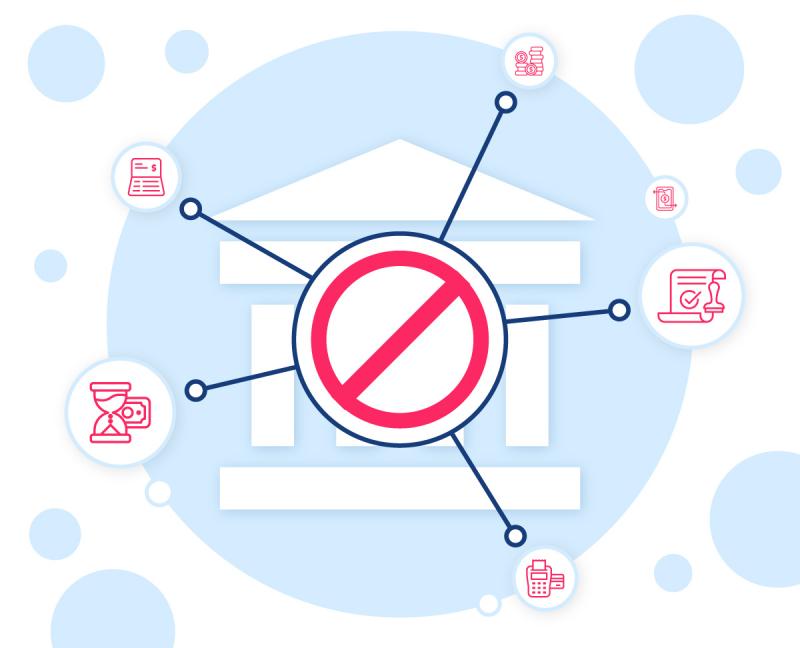
Opening a business bank account can be complicated and frustrating even at the best of times. If you ask any start-up or would-be entrepreneur for their experiences with high street banks, the chances are you’ll hear a tale about endless form-filling and long waits, only for the business to be declined at the end of the application process – and frequently without much explanation.
There are usually many hurdles to overcome and checks to complete when you apply for a business account. For example, you may face an uphill struggle if any of your directors have poor personal credit histories, as a bad credit score will instantly set your application back. Even if your application is successful, the checks are time-consuming and distracting. And, of course, getting an account is no guarantee that the bank won’t withdraw it later on, again with little explanation.
For start-ups, being refused an account may mean the business goes nowhere, no matter how viable the proposition. Whatever stage your company is at, it cannot function properly if it’s unable to take card payments and manage money coming in and out of the business. Without a bank account, cash flow is strangled.
The economic fallout from Covid-19 has brought these vulnerabilities into sharp relief, as the banking shutters are descending further for any SME hoping to open a business account through the traditional route. All the major banks are either refusing new applications or warning of long delays. This is because they are too busy dealing with emergency loans under the government-backed relief programmes or preoccupied with easing the financial pressures of existing clients.
The world has certainly become a lot tougher for SMEs and entrepreneurs. In addition to Covid-19, what if your business operates in Europe and you want to open a business account in the UK? With the UK’s departure from Europe, passporting for financial services is in doubt. Because of Brexit, banks are reassessing their offerings and may close accounts for Europe-based customers.
Economic recovery from the pandemic will depend on more than just loans and government relief packages. We must lift the financial straitjacket and make it easier for companies to set up in business. It’s often remarked that SMEs are the backbone of the economy, and if we are to build back better from the present crisis, we must ensure that they also become a crutch for recovery. With unemployment rising, many people will be looking to start their own businesses. Indeed, one in five British people now wants to go into business for themselves, as reported by small business.co.uk. But if they can’t access banking services, the recovery will be severely restricted.
Those seeking to open a business account should consider the alternatives to traditional banks, as fintechs and challenger banks offer many options beyond high street providers. Assuming that traditional banks will even consider you at the present time, who wants to negotiate their antiquated onboarding practices?
For example, standard onboarding forms often have numerous fields to fill in, while the bank may need to separately verify the details of each director – names, addresses, ownership details, and so on. Several different forms of identification may be required, as well as interviews in person. The more people involved in the business, the more input is required to satisfy all the checks. In the age of e-commerce and on-demand services, this is simply a bad user experience. Customers today expect speed and low friction, but without compromising security. Endless form-filling and red tape belong to an earlier era, to old-school administration and legacy systems. Digital technology, big data, artificial intelligence and machine learning, coupled with the new freedom from open banking, have enabled alternative providers to step in and offer an easier route for business accounts.
Thanks to payment service providers such as Safenetpay, businesses no longer have go through a tedious onboarding process. Moreover, at a time when banks are likely to refuse many businesses anyway, it’s good to know that there are providers who are not just quicker to onboard, but also more accommodating.
Today, a growing number of challengers can create bank accounts online and from mobile apps, and they can do it in a matter of days, rather than the weeks it sometimes takes banks to process information. By asking just a few necessary questions, they can onboard a business without fuss or delay, and, crucially, remain compliant.
Incumbent banks have long dominated the marketplace, but businesses should look beyond the high street for a swifter and more convenient way to open an account. And because many of today’s start-ups are innovative digital businesses, it’s fitting that fintechs are helping them with alternative banking and payment solutions. Payment service providers such as Safenetpay are building the digital economy at time when SMEs and entrepreneurial spirit are needed more than ever.